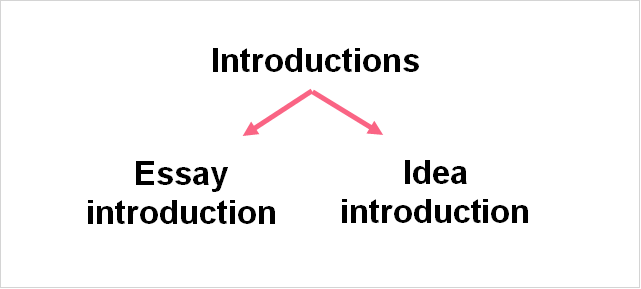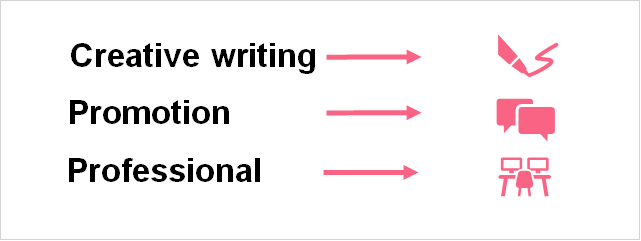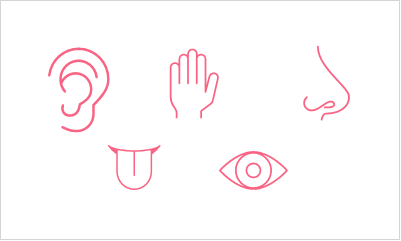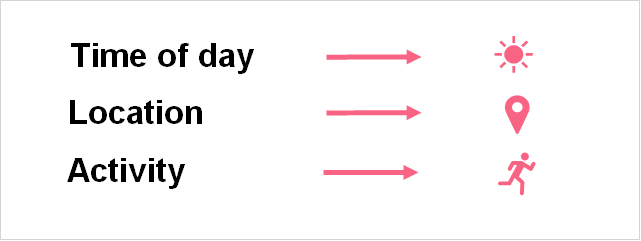What is academic writing?
Okay so, academic writing - oof, this ones a biggie. No matter what you end up doing as an adult or which school you attend, chances are you have probably taken some academic writing course or, at the very least, have had to learn academic writing skills. If you want to improve your essays, let’s take a look at what academic writing is. 
|
Definition |
Examples |
Other Names |
| Academic Writing |
A formal writing style |
Critical essay, persuasive essay, descriptive essay, etc. |
Essay, research paper, report, dissertation, etc. |
In modern terms, the academic writing style is better known as an essay. While you may think that the essay dates back to the early stages of human writing, the essay is actually a relatively modern writing technique. The work below is widely considered to be the first essay.
| Notable Work |
Author |
Date |
Description |
| Essais |
Michel de Montaigne |
1580 |
The French word ‘essais’ means attempts - or tries. |
When Montaigne wrote this new style, it was starkly different from the rigidly structured essay we think of today. Montaigne wrote freely about topics, often citing ancient Greek and Latin texts for support. So, what exactly is academic writing today? While there are many different types of essays today, there are 4 main categories you are likely to encounter today.
Argumentative Essay
Critical Essay
Expository Essay
Persuasive Essay
| Essay Type |
Description |
| Argumentative |
States a thesis and builds up evidence for this thesis. This is the most common essay type you’ll encounter and the one most often written. |
| Critical |
Evaluates a text by analysing it, rather than trying to make an argument, it tries to understand the meaning of the text (be it a movie, book, etc.) |
| Expository |
Gives an explanation of a specific topic without trying to prove a point, but rather to give an objective view of the matter. |
| Persuasive |
Presents a point to the reader and tries to persuade the reader towards believing that point. |
How can I make my essay sound better?
If you’re interested in academic writing help, look no further. In this section, we’ll go through the most basic building block of essay writing: words. In order to make your essay sound better, you’ll need to employ some common academic phrases for essay writing. 
| Technique |
Description |
| Formal tone |
Usually, casual language you use in everyday conversation is emitted from essays. (Although this is up to the discretion of the writer and their subject) |
| Specific language |
A diverse and precise vocabulary can be used to better convey your points. |
| Sources |
Sources should be cited following commonly used citation frameworks. |
| Point of view |
Usually, essays are written from the third person. However, this also depends on the subject and author. |
If you make sure to at least have the basics listed above, your essay will already sound a lot better. So, what are some common academic writing phrases or words?
| Purpose |
Examples |
| Explaining points |
In order to, in other words, central to the text is, etc. |
| Supporting an argument |
Moreover, furthermore, another key aspect, coupled with this fact, etc. |
| Contrasting |
On the other hand, examining this in another light, considering this from another angle, etc. |
What are introductory phrases examples?
If you’re wondering: how many words should an introduction be, what words should I use in an introduction - here are some academic writing tips dealing with introductions. There are two types of introductions you’ll need in academic writing, explained in the table below. 
| Type |
Description |
| Introduction of Essay |
When you’re starting an essay, no matter what type of essay you’re writing, you should always have an introduction. |
| Introduction of Ideas |
In academic writing, you will be writing about various different ideas, resources, themes and more. You will need to introduce these elements to your audience. |
If you’re wondering what introductory phrases you should use, you should think about what type of introduction you’re doing. Let’s take a look at some examples of either of the two types of introducing.
| Introduction |
Type |
Example |
| Argumentative essay |
Intro to an essay |
Policies aimed at reducing the harm that smoking causes should also, therefore, focus on reducing the second-hand smoke breathed in by non-smokers. |
| Citing a movie |
Intro of an idea |
Directed by Craig Gillespie, the film I, Tonya recounts the events surrounding the 1994 attack on Nancy Kerrigan. |
| An idea |
Intro of an idea |
In visual art, the fourth wall is the idea that there is a fictitious wall separating the story from real life. |
What are some good linking words?
If you’re in need of some academic writing examples dealing with linking words, you’re in the right place! Linking words are vital in academic writing, however what exactly are they? Let’s define linking words.  Linking words are words that connect two ideas together. It’s as simple as that! However, there are different linking words that you can use depending on what kind of ideas you’re trying to link together. There are four main categories where linking words can be used. Let’s take a look at these.
Linking words are words that connect two ideas together. It’s as simple as that! However, there are different linking words that you can use depending on what kind of ideas you’re trying to link together. There are four main categories where linking words can be used. Let’s take a look at these.
| Category |
Description |
Example |
| Support |
When you want to support an idea using another one. |
Additionally, the driver did not express sadness. |
| Contrast |
When you want to contrast two ideas. |
In contrast, we do see sadness from the passenger. |
| Emphasis |
When you want to emphasize an idea with another idea. |
Clearly, the passenger is more affected by the exchange. |
| Sequence |
When you want to order a sequence of ideas. |
Subsequently, the audience knows these effects will last a lifetime. |
Here are some more examples of linking words you can use with these categories: 
What words are not used in academic writing?
There are many different words you should avoid when writing academic papers. When it comes to phrases and words to avoid, you will get many differing opinions from teachers and academic writing services alike. However, here are some general words and phrases to avoid.
- Contractions
- Cliches
- Place-holders
- Passive verbs
Take a look at the following image for an example of each of the above. 





 Linking words are words that connect two ideas together. It’s as simple as that! However, there are different linking words that you can use depending on what kind of ideas you’re trying to link together. There are four main categories where linking words can be used. Let’s take a look at these.
Linking words are words that connect two ideas together. It’s as simple as that! However, there are different linking words that you can use depending on what kind of ideas you’re trying to link together. There are four main categories where linking words can be used. Let’s take a look at these. 




 Take a look at some descriptive words for each of the above scenarios.
Take a look at some descriptive words for each of the above scenarios. 